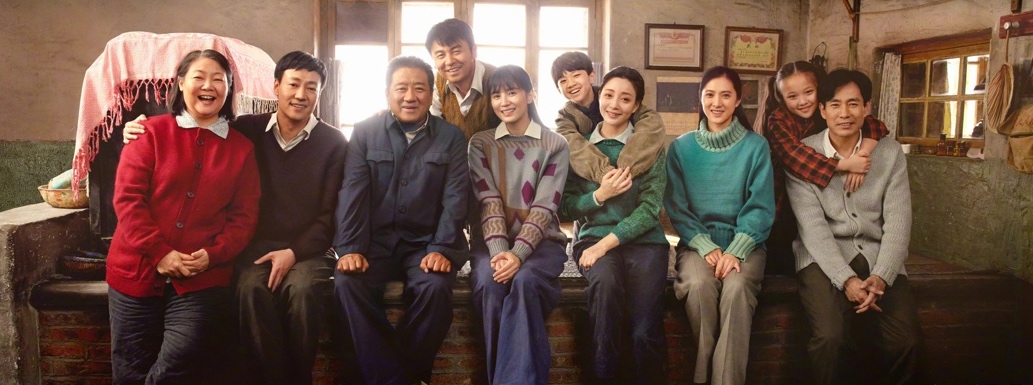‘A Lifelong Journey’: A family saga through China’s past five decades
A drama focusing on the shifting fortunes of a Chinese family beginning in the latter half of the 20th century, filled with struggle and bittersweet nostalgia, has won over audiences both young and old.

How have the past five decades of momentous change shaped the lives of ordinary Chinese families? That is the focus of the recent TV series A Lifelong Journey (人世间 rén shìjiān), which has been one of the most talked-about shows of the first half of 2022. Scoring a respectable 8.1 out of 10 on the popular ratings platform Douban, it has captured the attention of audiences both young and old.
The series is directed by Lǐ Lù 李路, who is best known for his 2017 anti-corruption hit In the Name of the People. Based on a prize-winning novel of the same name, it chronicles the shifting fortunes of the Zhou family, starting in 1969 with their humble beginnings in a shantytown located in the fictional northeast city of Jichun, where most of the story takes place.
With A Lifelong Journey, Chinese viewers found parallels with their own families’ experiences, from the rustic simplicity that characterized life in the ’70s and early ’80s to a shared bewilderment at the breakneck speed of social change as Reform and Opening transformed the economy.
The drama focuses on the three Zhou siblings — eldest son Zhōu Bǐngyì 周秉义, middle daughter Zhōu Róng 周蓉, and youngest son Zhōu Bǐngkūn 周秉昆 — who begin the story as teenagers sent far from home during the Cultural Revolution.
When the national college entrance exam resumes in 1977, Bingyi and Rong compete with 10 years’ worth of university applicants and earn places at Peking University, launching them into prestigious careers in the Party and academia, respectively. Meanwhile, Bingkun, who never did well at school, represents the everyman (老百姓 lǎobǎixìng) who must tough it out as a blue-collar worker amidst the deindustrialization and economic stagnation gripping northeast China as Reform and Opening kicks into full swing.
Billed as an authentic portrayal of what the past five decades have been like for a laobaixing family, the drama has received praise from audiences for its down-to-earth style, well-fleshed-out characters, and realistic portrayals of the impact of China’s sweeping social changes at the grassroots level. Readily appealing to a cross-generational audience, the series enjoyed notable resonance among older viewers, who praised its depiction of everyday life in the ’60s and ’70s, with its attention to details like the communal washrooms and coal-fired stoves evoking a bittersweet nostalgia. Times were tough, but everyone was equally poor in a way that forged close and meaningful bonds between neighbors.
However, for some viewers, myself included, , where the drama falls short is pacing. Totaling a whopping 58 episodes, the story noticeably drags in some areas, despite covering a timeline that spans five decades. One reason is that it tends to oscillate between a family drama and a period piece, and is unable to effectively bridge the two genres. In particular, instead of weaving the historical setting more meaningfully into the narrative, the show can veer into melodrama and clichéd character squabbles that feel like missed opportunities.
While the focus of A Lifelong Journey is not on politics, certain themes remain present. For example, perhaps unsurprisingly, the show’s treatment of history hews close to state narratives. Bingyi and Rong’s displacement from home during the Cultural Revolution is depicted as youthful adventures where they discovered themselves, a period that they would look back on nostalgically in later life. Indeed, there is little by way of context as to why they had to leave, or how the Cultural Revolution — which the show implicitly acknowledges as a highly disruptive event that forcibly separated families — came to an end.
Toward the second half of the drama, “red” themes begin to figure increasingly prominently in the story. A key subplot follows Bingyi as he rises through the Party ranks. He epitomizes the model cadre: impeccably upright, and always placing the people’s interest above his own. Almost like a People’s Daily feature in screenplay form, Bingyi’s exploits on-screen are supposed to reflect the Party’s responsible and competent governance.
Anti-corruption is also a recurring motif, with the show going out of its way to emphasize how respectable officials like Bingyi would never use their power for personal purposes, even when doing so might be understandable. When characters attempt to ask for backdoor favors from their Party friends and family members, they are admonished and educated on why their requests are morally wrong.
Given that these politics-heavy subplots do not add much to move the overall story forward, it leaves one to wonder if that screen-time could have been put to better use, or perhaps trimmed down in service of a more concise and focused overall narrative.
As China’s economy takes off and the show’s timeline approaches the present day, the characters’ lives gradually improve, underscored by the shots of glassy skyscrapers and impressive infrastructure. Notably, however, the drama is not characterized by a triumphalist linear progression that one might have expected. Instead, the flavor of A Lifelong Journey is bittersweet: while the characters end up better than where they started, they had to endure their share of dramatic ups and downs along the way.
A Lifelong Journey has been picked up by Disney+, and is slated to stream later this year as part of the platform’s broader bid to feature more international content. Speaking to Variety, Disney’s Asia-Pacific head of content and development said, “There is tremendous appetite globally for high quality Asian content and original stories with great cultural resonance.”
A Lifelong Journey, by touching on the enduring cultural significance of the Chinese family and exploring its evolving dynamics alongside China’s economic and social transformations, certainly fits the bill — even if its rough edges could do with some considerable polishing.





